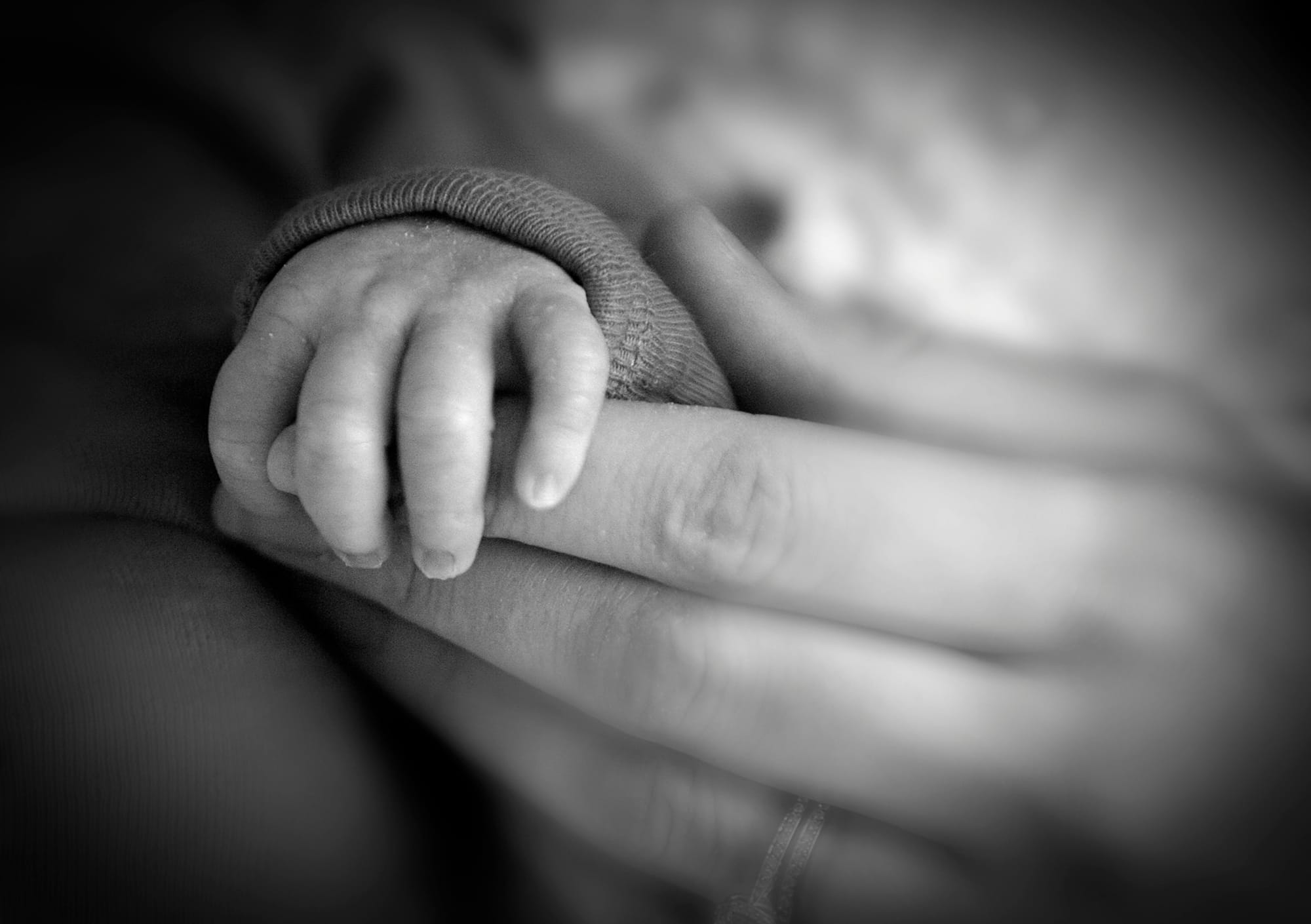Confronting fragility, and embracing it

Most of the time, I get taken in by the myth that life is stable and that I have control. But in the past few weeks, we have waited for news as our daughter’s life and health were imperiled in childbirth. And we have held and cherished her tiny baby. Side by side, these experiences have knocked me off my complacency, sharpening my sense of how fragile lives and expectations are—and yet how beautiful.
Fragility has this double edge. On the one hand, it’s frightening—the vulnerability of bodies to disease or disaster, the instability of political order. Whether chaos comes quickly or builds slowly, it undermines the order and stability most of us cling to. On the other hand, fragility is a central element of beauty and wonder—a baby’s tiny fingers, a delicate spring flower, a stained-glass window. That these fragile things survive is part of their preciousness, and awe is a common reaction.
Fear and awe aren’t antithetical reactions. Experiencing fragility in these different ways expresses something fundamental, which is that human existence is both terribly and beautifully fragile.
Ruptures in the force
Fragility’s terrible side may be more familiar. Our son-in-law, like many new parents, has had to overcome fear about how fragile Baby is—how completely dependent she is on his gentle, attentive care, and how easily a mistake could harm her. More generally, people invest their hearts, time, and lives in all kinds of projects—like putting food on the table, establishing a career, raising a family. Yet any of the achievements could be gone in an instant. Natural disasters could cut off access to food; disease could undermine the ability to work; human misdeeds, misjudgments, or cruelty could tear the family apart.
More routinely, unexpected events don’t totally rupture life’s fragile structures, but severely stress them instead. New parents often imagine that they can maintain an equal devotion to career, personal projects, and family, only to find that the projects conflict. Grandparents often find that they want to help with the grandkids, but their bodies don’t cooperate. As philosopher Martha Nussbaum puts it (in a quote slightly out of context), “…there may be contingent conflicts of value that make it difficult or even impossible for [people] to pursue all the things to which they have committed themselves.” The fact is that we are fragile in many ways: It takes a lot of luck to get through life more or less intact.
Meanwhile, if you care about yourself, your children and grandchildren, or your wider society, you’ll experience fragility more intensely than someone who doesn’t. Jean-Paul Sartre pointed out that whatever the unplanned or life-altering event, objectively it’s just change: After a tornado rips through a town, there’s nothing more or less existing in the universe—everything is just arranged differently. But that’s not how most of us experience it. When disaster strikes—a loved one dies, our home burns down, we lose our savings—there’s an objective impact on life options, and a subjective emotional impact. The emotion often includes an anxious realization of the fragility of life: Able to imagine that things could be otherwise, caring people interpret the change as destruction and fragility.
The fear of fragility gets many of us working overtime to achieve stability, protections, and buffers against the objective eventualities and against their potential emotional fallout. Some of us look beyond human existence toward faith in an unchanging God or other metaphysical order. As expressed by the Old Testament prophet Isaiah, “The grass withers, the flower fades, but the word of our God will stand forever. (Isaiah 40:8).” Others optimistically plan and work for the future, preparing to optimize the odds of consistent and meaningful work, physical and mental health, and happy and stable family life. People who are rich enough amass 401Ks, property, even private islands to create their own reality. All of that prepping does improve the odds (probably). Still, there’s a lot of luck involved. Even those who have faith in God don’t know whether God’s purposes will align with their own—just ask Job.

Holding tiny fingers
So as our new granddaughter’s tiny fingers wrap around mine, I know all this. And feelings of fear and awe and love and protectiveness get all mixed up as I recognize the fragility of that new little person. My ability—the human ability—to feel all that is beautiful because it’s a way we recognize, with joy and trepidation, that the new person is part of our fragile human family. She’s one of us.
Wrapped up as it is in caring, that recognition of fragility can also put us to work. When a baby is born, parents devote themselves to her care. Family and friends gather around with food, gifts, and, hopefully, a commitment to improve the world as best we can for the child’s growing up. That is beautiful, too.
Such kind responses to fragility can motivate us to protect many fragile things—that is, almost all of what we value. So people go on creating, appreciating, and protecting fragile things—art, flowers, babies, families—embracing the beautiful and awesome side of fragility despite the fear.
Dispelling the myths of stability and control feels right, so I’ll try to hold onto my sharpened sense of fragility, in both its aspects—opening all the more tenderness for daughter, grandbaby, and everything I love.